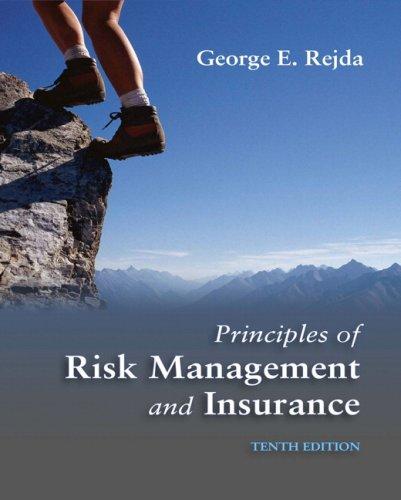Question
Hello Ineed to update my old template to new template. Please let me know which table of context points goes to new table of contents.
Hello Ineed to update my old template to new template. Please let me know which table of context points goes to new table of contents. for example from old template table of contents. i have added the sample pics.
1Purpose of Project Plan ,2Project Purpose & Scenario ,3Project Background goes into new templae table of contents objectice1. Project Background & Objective If posibble can you draw lines which one goes where . i have added old and new template. This is old template TABLE OF CONTENTS
1 Purpose of Project Plan
2 Project Purpose & Scenario
3 Project Background
4 Project Scope Statement
4.1 Countermeasures
5 Guidance Documents
6 Project Technical Status as of Date of Project Plan
6.1 Dazzler Countermeasure (DCM)
6.2 Cloud Countermeasure (CLOUD CM)
6.3 Advance Seeker Countermeasure (ASCM)
7 Stakeholders and Responsibilities
8 Stakeholder Communication/Coordination
8.1 Stakeholder Coordination Plan
8.2 Meetings and Status Reporting
8.3 Organization Chart
8.4 Technical Reviews
9 System Capabilities, Requirements, and Design Considerations
10 Acquisition Strategy
11 Life Cycle Model
12 Resources and Schedule
12.1 WBS Activities
12.2 Schedule
12.3 Basis of Estimate / Work Product Size Estimates
12.4 Effort, Staffing, and Cost Estimate
12.4.1 Staffing -
12.5 Engineering Environment
12.6 Contractor Efforts
12.6.1 Contractor Work Allocation
12.6.2 Contracting Strategy
12.6.3 Management of Contracted System Engineering Efforts
13 Project Training Needs
14 New Technology Pilots and Process Pilots
15 System Engineering Process
15.1 Requirements Development
15.2 Logical Analysis
15.3 Design Solution
15.4 Implementation
15.5 Integration
16 Product Evaluation
16.1 Peer Reviews
16.2 Verification
16.3 Validation
17 Transition
18 Requirements Management
19 Interface Management
20 Process Assurance Plan
20.1 PA Plan Purpose
20.2 Management and Organization
20.3 PA Resource Requirements
20.4 Project PA Activities
20.5 Reporting, Noncompliance Documenting and Tracking
21 Configuration Management
22 Data Management (DM)
23 Project Deliverables/Work Products
24 Simulation Support Planning
25 Risk Management Plan
25.1 Risk Management Process
25.2 Risk Identification & Profile
25.3 Risk Management Content
26 Measurement and Analysis
26.1 Project and Measurement Objectives
26.2 Measurement Specifications
26.3 Technical Objectives
26.4 Technical Analyses
26.5 Project Measurement Data Reporting
27 Causal Analysis and Resolution (CAR)
28 Decision Analysis and Resolution
29 Corrective Action Tracking
30 Security
31 Data Rights
32 Tailoring of Organizational Standard Processes
33 List of Acronyms
Appendix A -DraftTechnology Protection Plan
This is new template TABLE OF CONTENTS
1. Project Background & Objective
2. Project Execution
2.1. Project Scope
2.2. Project Deliverables / Work Products
2.3. Research & Technology Protection
3. Acquisition Approach
3.1. Make / Buy Analysis
3.2. OGA Partnership
3.3. Contracting
3.4. Intellectual Property and Data Rights
4. Integrated Master Schedule (IMS)
5. Resources
5.1. IPT - Organization Chart
5.2. IPT - Roles and Responsibilities
6. Communication Plan
7. Systems Engineering
7.1. Technical Management Processes
7.1.1. Technical Assessment
7.1.1.1. Technical Reviews
7.1.1.2. Peer Reviews
7.1.1.3. Technical Performance Measurement (TPM)
7.1.1.4. Technology Readiness Level (TRL) & Manufacturing Readiness Level (MRL) Assessments
7.1.2. Requirements Management
7.1.3. Interface Management
7.1.4. Configuration Management (CM)
7.1.5. Data Management (DM)
7.1.6. Risk Management
7.1.7. Decision Analysis and Resolution
7.1.8. Simulation Support Planning
7.2. Technical Processes
7.2.1. Stakeholder Requirements Definition
7.2.2. Requirements Analysis
7.2.3. Architectural Design
7.2.4. Implementation
7.2.5. Integration
7.2.6. Verification
7.2.7. Validation
7.2.8. Transition
8. Measurement
9. Process Assurance
10. List of Acronyms


Step by Step Solution
There are 3 Steps involved in it
Step: 1

Get Instant Access to Expert-Tailored Solutions
See step-by-step solutions with expert insights and AI powered tools for academic success
Step: 2

Step: 3

Ace Your Homework with AI
Get the answers you need in no time with our AI-driven, step-by-step assistance
Get Started


